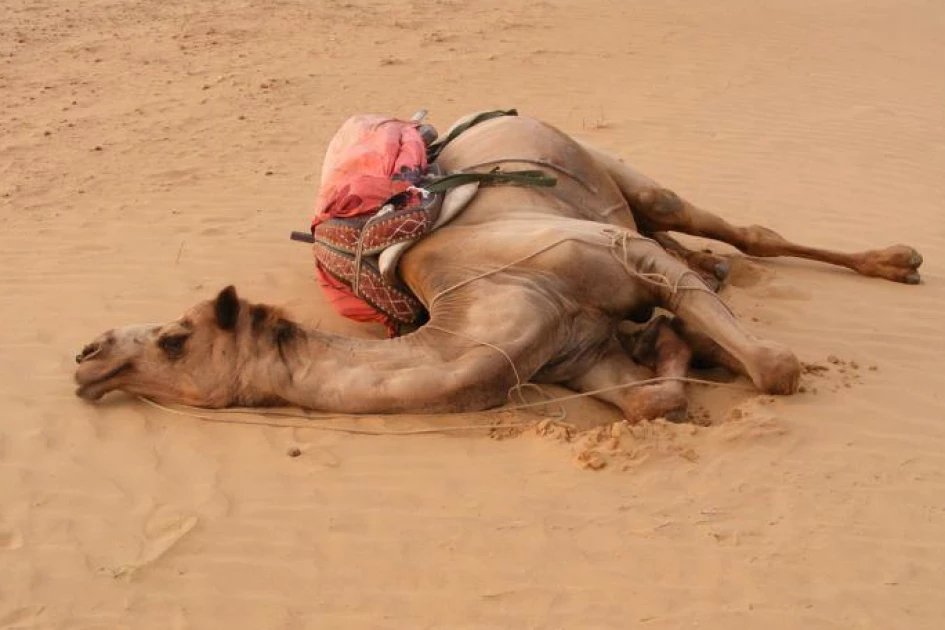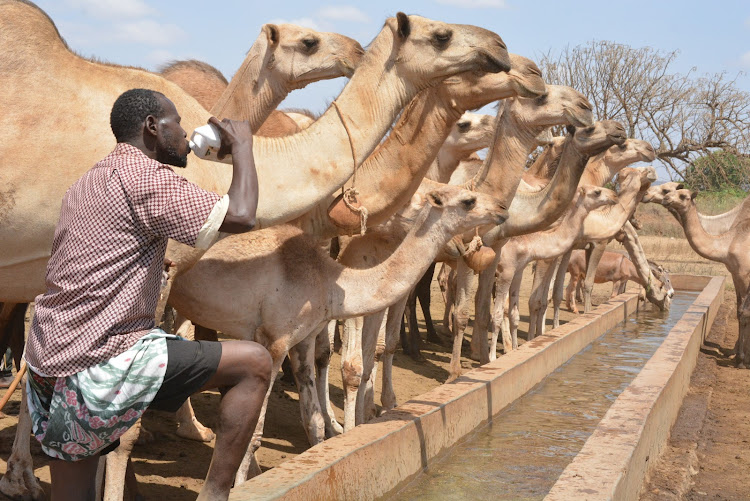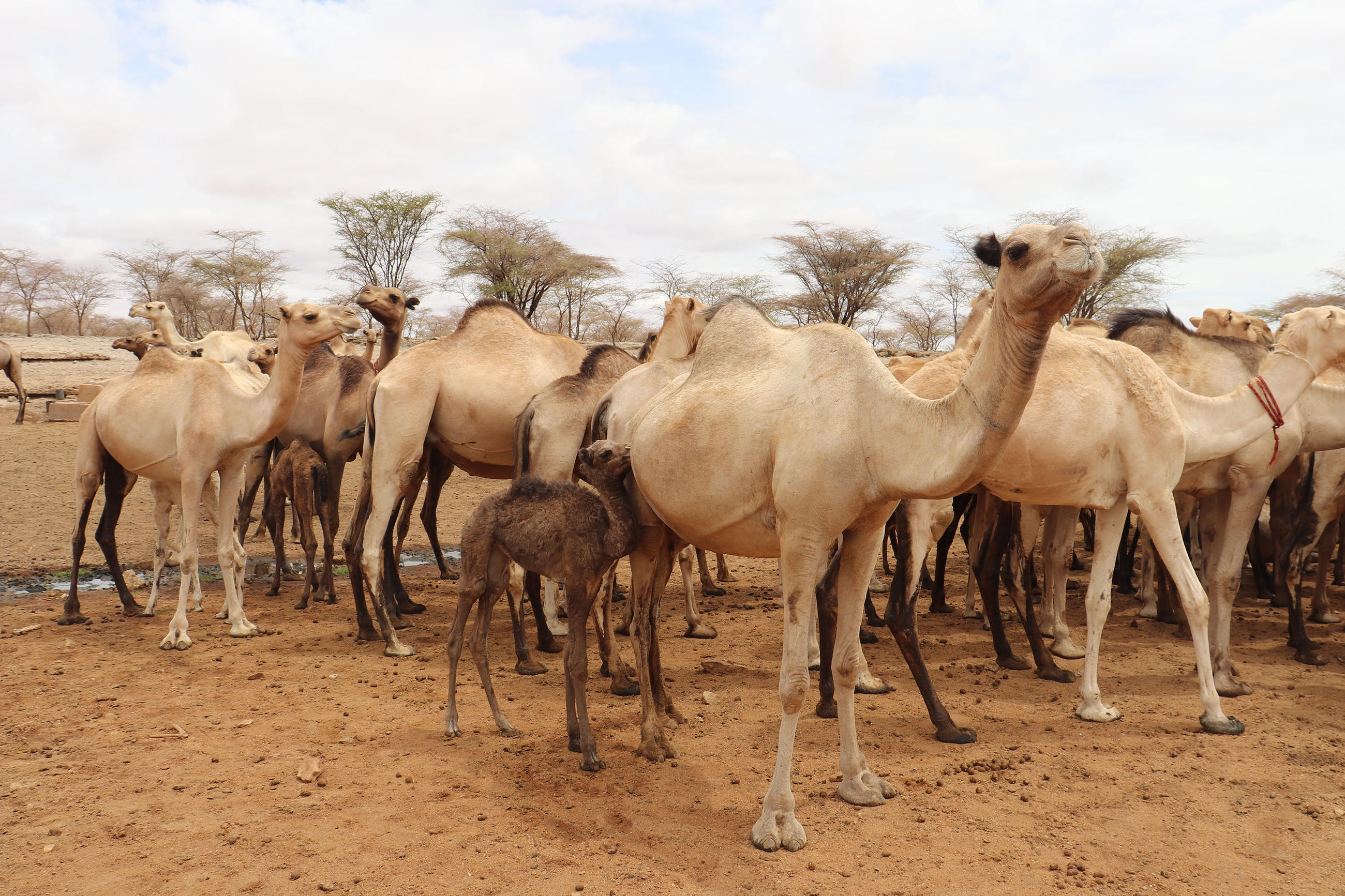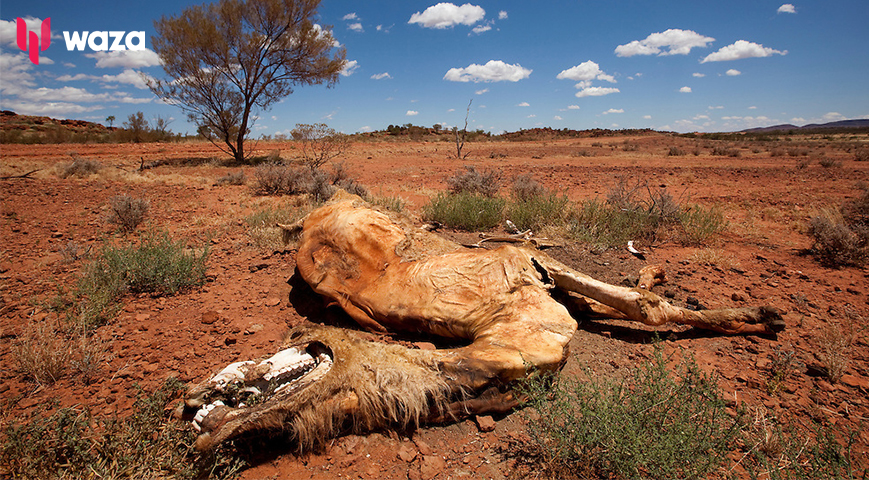An outbreak of unknown camel disease has been reported in Qorqa, Marsabit County, with herders reporting losses.
Gindole Dabello is counting his losses after losing pregnant camels to a mysterious disease.
"I am in shock. This is a huge loss to my family. We call for speedy lab tests to ascertain the main cause" said Dabello.
Tumal Orto, a livestock farmer, stated that the initial report indicated that over 40 herders reported cases of camel death.
However, the farmer claimed that herders used "tobacco" as a traditional method of treatment, ignoring professional advice from veterinary officers.
Did you read this?

"I once encountered the same experience, raised it with the animal health officers and diligently followed their advice and saved my livestock," Tumal said.
He urged the county government to adopt a farmer-to-farmer (F2F) approach to sensitize livestock farmers.
He said, "I advise livestock farmers to be responsible for managing their herds which includes providing medical care to their animals" .
According to an official document obtained exclusively by Citizen Digital, the disease was first reported in February, when the Department of Veterinary Services received reports of camel death from a "mysterious disease."
According to Woto Forole, Ward Animal Health Officer in North-Horr, the disease syndrome killed mature and recently calving/lactating camels belonging to various owners on a sporadic basis.

“We received the report through phone calls from the area chief and the local herders and as a department we visited the area four times between February and April to address the issues,” reads part of the report.
During the four visits, the veterinarians treated the clinically sick camels with broad-spectrum penicillin-based antibiotics. The camels "responded well" to the treatment, implying that the disease could be caused by bacterial infections or their equivalents.
A viral video clip shows locals cutting meat from a dead camel for consumption. The veterinary team has since advised the community not to consume meat from affected livestock and remain vigilant.
The animals had a clinical history of labored breathing, ocular discharges, cough, lameness of rare limbs, loss of appetite, and dehydration, with death occurring a few days after the disease began.
Other signs include camels' failure to respond to treatment. The veterinary department also expressed concern that the community treated the animals with 10% oxytetracycline at low doses, which never yielded positive results. Later, the veterinary team advised the use of broad-spectrum penicillin antibiotics.

The camels are currently being sampled, and treatment is being provided individually. Blood samples will be sent to Kabete Veterinary Investigation laboratories for confirmation diagnosis.
The department has further requested that any willing partners come on board and assist in the investigation and possible intervention.









